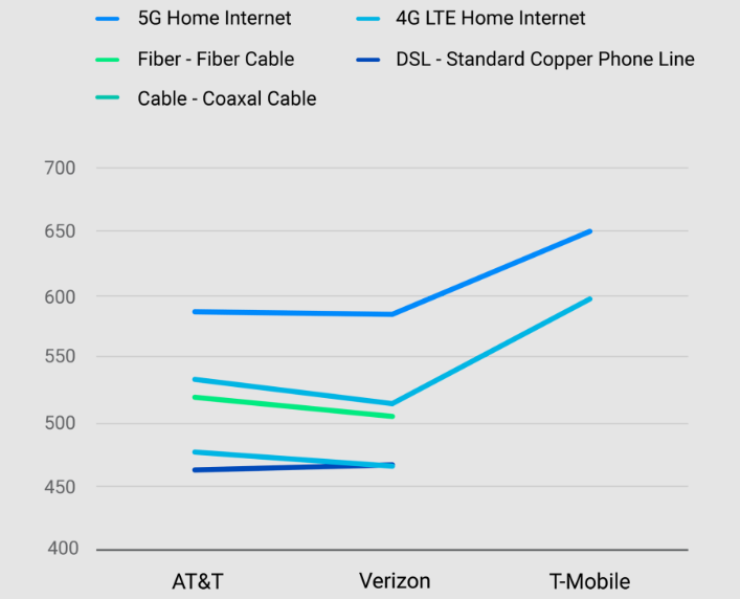Customer satisfaction with Fixed Wireless Access (FWA) internet service continues to outpace that of traditional fiberoptic and cable offerings, according to new data from J.D. Power.

FWA, a method of delivering high-speed internet through existing 5G or 4G LTE wireless networks operated by mobile carriers, has gained widespread traction among users and shows no signs of slowing down.
T-Mobile stands out as the leader in perceived customer value, driven by aggressive marketing and competitive pricing strategies. Across the board, FWA providers continue to receive strong satisfaction scores, particularly for affordability, with 70 percent of FWA customers agreeing that their plan is affordable, compared to 53 percent of customers on fiber or cable plans.
The study also shows that FWA satisfaction remains steady even as adoption has grown by 47 percent in the past year, indicating a successful performance for telecom operators in this segment. However, the report notes that while cost is a significant driver of adoption, providers must focus on long-term reliability and value to retain customers as the technology matures.
While early adopters of any new technology are typically enthusiastic, satisfaction levels can decline as a service scales. However, FWA appears to be an exception. Even as adoption has grown by 47 percent over the past year, bringing the total number of FWA subscribers in the U.S. to 11.8 million, customer satisfaction remains steady. The technology continues to outperform fiber and cable in user ratings across the board.
FWA maintains its lead across different regions, with urban customers showing the highest levels of satisfaction, followed by suburban and rural areas. This trend persists despite the greater availability of alternatives in suburban areas and the potential challenges of connectivity in rural zones.
Value remains a key factor in FWA’s appeal. The average monthly cost of FWA is $72, compared to $81 for wired internet plans. Seventy percent of FWA users say their plan is affordable, in contrast to just 53 percent of customers using wired services. T-Mobile, which has aggressively promoted its FWA offerings, leads the pack in perceived customer value.
Analysts see FWA’s strong value proposition as a critical driver for its growing adoption. However, the sector faces challenges in retaining customers, as lower prices alone may attract users willing to switch providers frequently. To maintain loyalty, companies will need to ensure consistent reliability and continue to deliver value as the technology evolves.
The J.D. Power data, part of the 2024 U.S. Residential Internet Service Provider Satisfaction Study, reflects feedback from nearly 30,000 customers collected between November 2023 and August 2024. The findings suggest that FWA’s combination of affordability, performance, and customer satisfaction positions it for continued growth in the highly competitive internet services market.
TelecomLead.com News Desk
